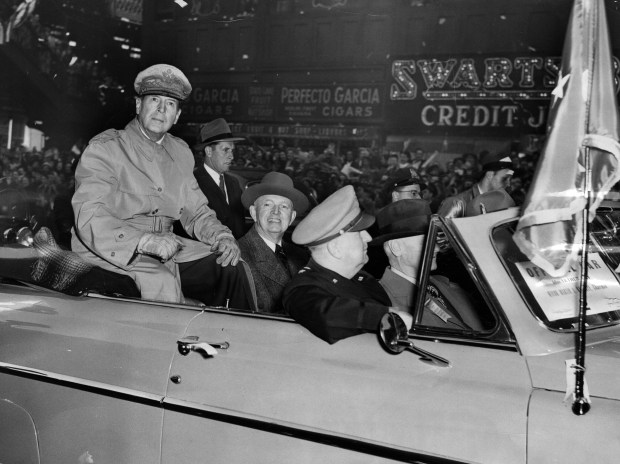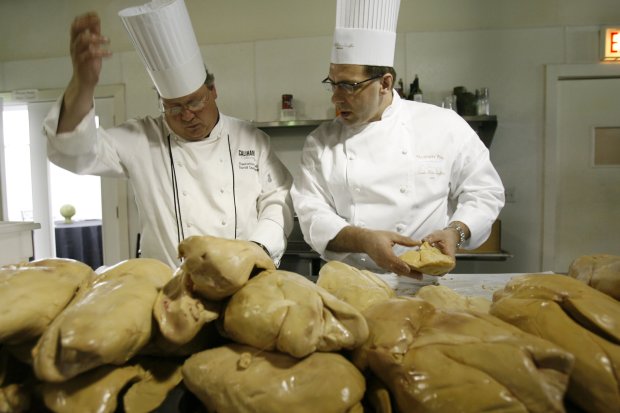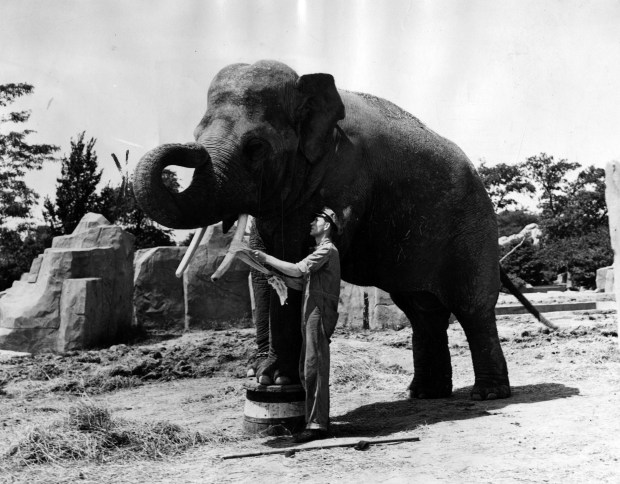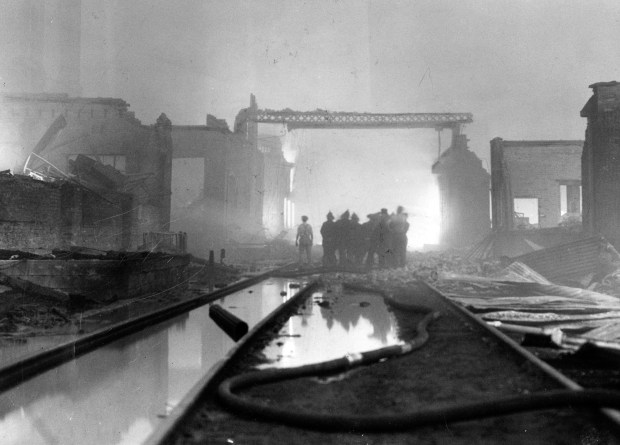Here’s a look back at what happened in the Chicago area on April 26, according to the Tribune’s archives.
Is an important event missing from this date? Email us.
Weather records (from the National Weather Service, Chicago)
- High temperature: 89 degrees (1986)
- Low temperature: 27 degrees (2006)
- Precipitation: 1.76 inches (1995)
- Snowfall: 0.8 inches (1910)
1941: The Chicago Cubs became the first Major League team to have organ music at a ballgame.
But the Tribune reported organist Ray Nelson had to cease playing at 2:30 p.m. “because his repertoire includes many restricted ASCAP arias, which would have been picked up by the radio microphones hooked up a half hour before game time.”
Also in 1941: Brookfield Zoo’s Ziggy the elephant threw down his keeper George “Slim” Lewis and tried to gore him. Lewis stunned Ziggy with a punch to the eye, jumped into the enclosure’s moat and escaped.
Vintage Chicago Tribune: Our favorite animals who became celebrities
The zoo’s management wanted to put Ziggy down, but Lewis begged that the sentence be commuted to life imprisonment, indoors. Ziggy remained chained to a wall inside the Pachyderm House for 29 years.
An appeal by then-Tribune reporter Michael Sneed in 1969, started a movement — and a collection — to free the 52-year-old pachyderm.
Lindsey Laughlin: Saying goodbye to Ziggy, the elephant in my room
More than $15,000 in donations (or more than $132,000 in today’s dollars) was raised to build an outdoor enclosure for Ziggy to roam. On Sept. 23, 1970, Ziggy got his long-deserved taste of freedom.

1951: Gen. Douglas MacArthur, ousted from his Far Eastern command weeks earlier by President Harry Truman, thrilled a vast audience at Soldier Field with a fighting defense of his stand on the war in Korea. He had been welcomed to Chicago earlier that day with a parade down Michigan Avenue and State Street.
Throughout his dramatic speech, MacArthur was interrupted 19 times by “tumultuous applause,” the Tribune reported, for calling for a “realistic” policy that would be aimed at ending the war with a minimum loss of lives of American troops.

2006: The Chicago City Council voted to ban foie gras — the fatty livers created by force-feeding ducks and geese — effective Aug. 22, 2006.
“The City Council will be sitting in your kitchen to determine … what you should (eat) on a Sunday after church,” Mayor Richard M. Daley complained. He began working on a repeal soon after aldermen approved the ban.
Chicago celebrity chef Charlie Trotter brought local attention to the issue of foie gras and animal cruelty when he announced in March 2005 that his famous namesake restaurant would no longer serve the delicacy. Trotter said his visits to foie gras farms convinced him that the force-feeding process causes the birds to suffer.
Ald. Joe Moore, 49th, led the anti-foie gras charge in the City Council, saying it caused the “torture of innocent and defenseless creatures.” In September 2005, he introduced an ordinance banning the food.
Former “M*A*S*H*” actress and animal rights activist Loretta Swit appeared at a City Council Health Committee meeting on Oct. 25, 2005, and compared the practice of raising foie gras with the abuse of detainees by U.S. soldiers at the notorious Abu Ghraib prison.
The foie gras ban was mocked on “The Colbert Report,” and TV food personality and author Anthony Bourdain said it made Chicago look like “some stupid cow town.”
Several restaurants still offered foie gras on their menus in defiance of the new ordinance. The ban was repealed on May 14, 2008.
Want more vintage Chicago?
Subscribe to the free Vintage Chicago Tribune newsletter, join our Chicagoland history Facebook group, stay current with Today in Chicago History and follow us on Instagram for more from Chicago’s past.
Have an idea for Vintage Chicago Tribune? Share it with Kori Rumore and Marianne Mather at krumore@chicagotribune.com and mmather@chicagotribune.com




